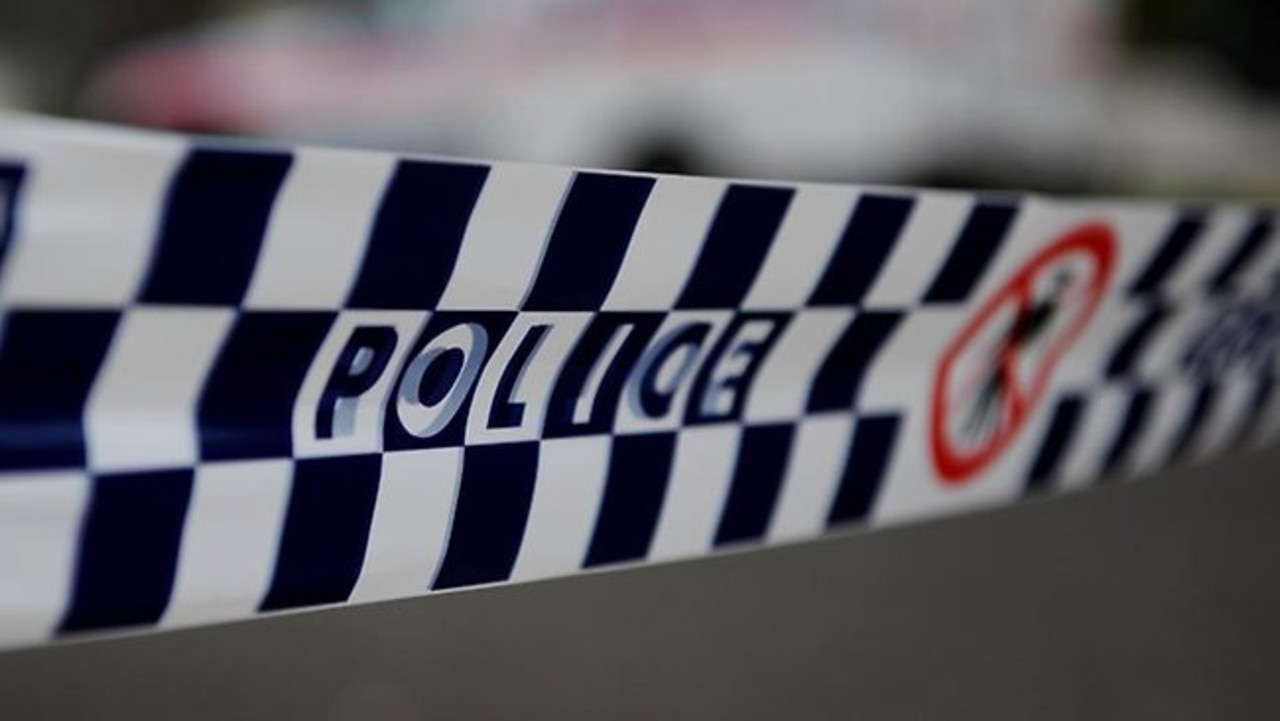Ukraine War: Qld Ukrainians reveal toll of conflict, react to impact of second Trump US presidency
As the third anniversary of Europe’s worst conflict in 80 years approaches and their home nation braces for the consequences of a second Trump presidency, brave Ukrainian Queenslanders are pleading: don’t forget about our plight.
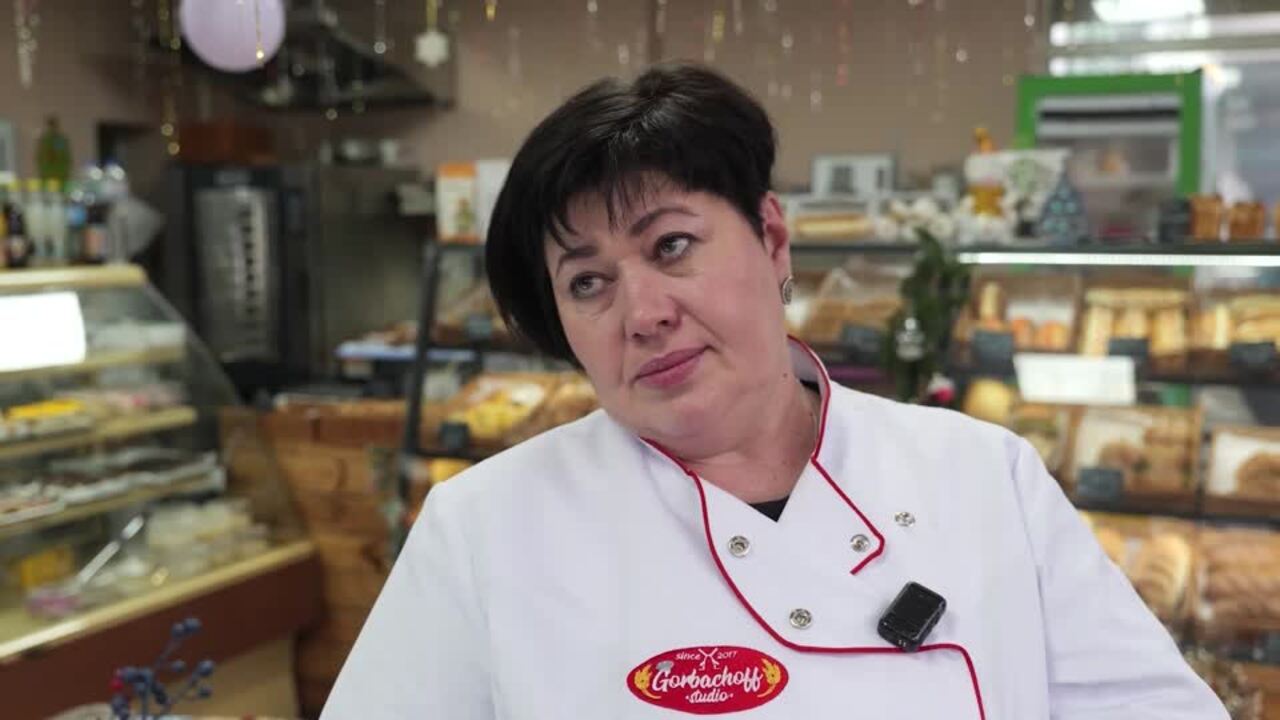
QLD News
Don't miss out on the headlines from QLD News. Followed categories will be added to My News.
Dasha cannot forget the horrors she and her family suffered through living under Russian military rule in her home city of Kherson during the early stages of Ukraine War.
Over nearly five agonising months, the Ukrainian refugee and now-Brisbane artist watched Vladimir Putin’s army commit war crimes, torture her friends and ransack people’s homes.
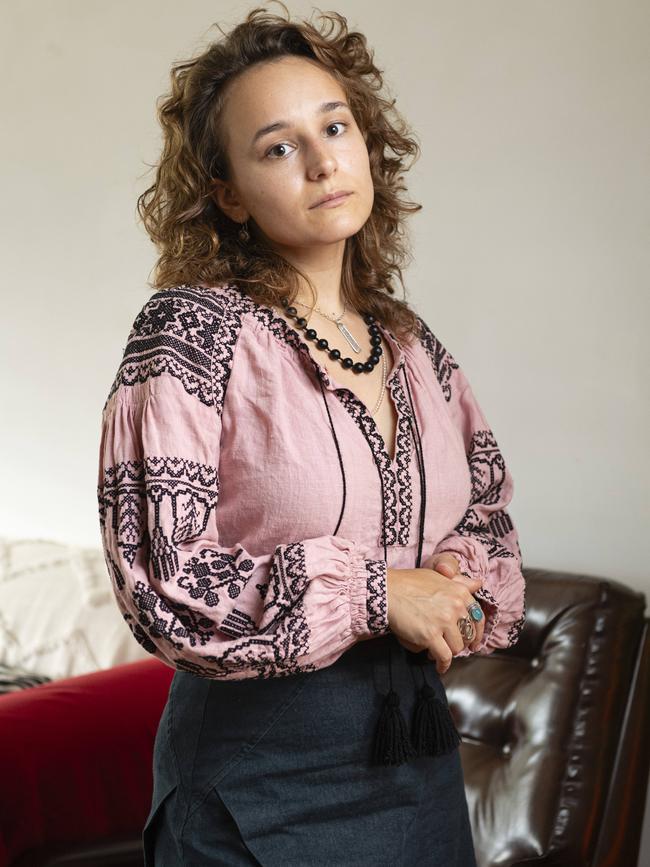
“They were hunting Ukrainians, they were hunting people and suggesting that all of us were Nazis,” the survivor of the occupation in the country’s southeast said.
“More and more of my friends became victims of torturing — they were being interrogated, kidnapped.”
As the third anniversary of Europe’s worst conflict since World War II approaches and her home country faces a possible inflection point with an impending second Donald Trump US presidency, Dasha is sharing her tale of bravery and survival in the hopes Australians won’t forget about her nation’s plight.
Dasha and her family are among the more than 11,000 Ukrainians who have resettled on our shores since 2022, driven from their previously peaceful lives by the actions of Russian aggression.
The war is also a source of anxiety and sadness for thousands of Ukrainian expats with family members either fighting on the front lines or simply trying to adapt to a dangerous new world.
Here are the stories, thoughts and feelings of four women coming to terms with a conflict that will decide their home country’s existence:
‘Such ugly things to women and kids’
The tree-lined streets of inner-city Brisbane are a world away from the remains of her old neighbourhoods in Kherson.
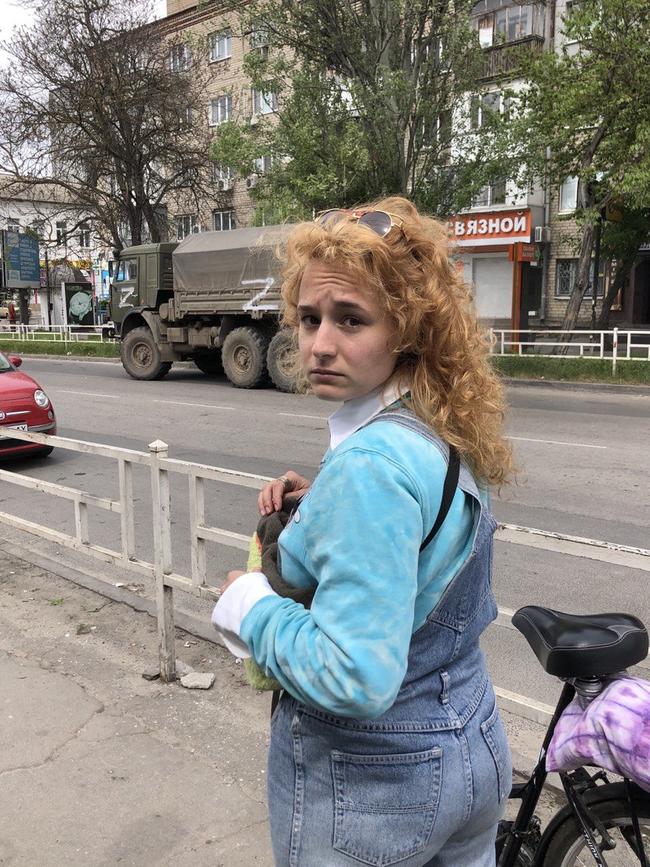
“My hometown is being ruined and bombed and we can do nothing to stop it,” the 28-year-old creative said.
Dasha found herself on the coalface of Russia’s brutal invasion just weeks after Ukraine war started in 2022, when armed forces took control of Kherson and illegally annexed the entire region as an unrecognised subject of Moscow that month.
There is now significant and widespread evidence of Russian soldiers committing war crimes during its occupation of the city and region, including torture, sexual violence, kidnappings and murder.
“Russian soldiers were entering every home they wanted to enter, doing whatever they wanted to people — we called it ‘cleaning house’, they were taking everything,” Dasha said.
“We never knew if they would come in (the next) five minutes or at night, because they liked to come at night.
“The worst thing is the ‘safari’ the Russians do, where they use drones to hunt civilians.”
Ukrainian forces would eventually take back the city and the northwest section of the region by November 2022, with the Dnipro River acting as the dividing line between the two territories.
But within five months of the invasion, Dasha said her family knew they needed to escape to protect her little brother Nikita.
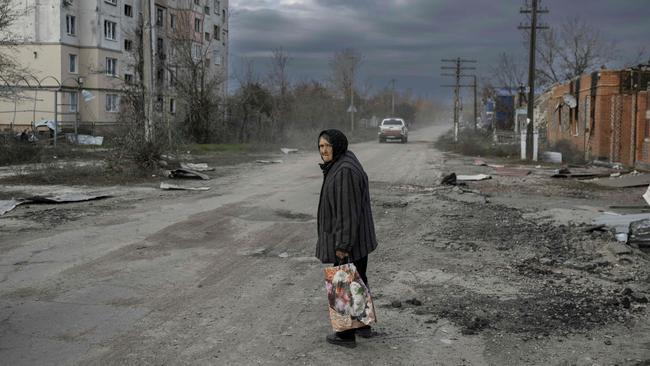
“We believed and trusted the Ukrainian army would liberate us soon but we couldn’t stay there because Russians were hunting people with Ukrainian tongues,” she said.
“My younger brother speaks Ukrainian only, and Russians were kidnapping Ukrainian kids and separating them from their families and we were worried they would steal our boy and he was 13.
“They would do such ugly things to women and kids.”
Trip to the beach becomes a run for the border
Dasha, her mother, brother, grandmother and partner hatched a plan escape the city.
It involved hiring Russians who had developed a black market business model moving people, food, medicine and other items in and out of Kherson via neighbouring Crimea and Georgia.
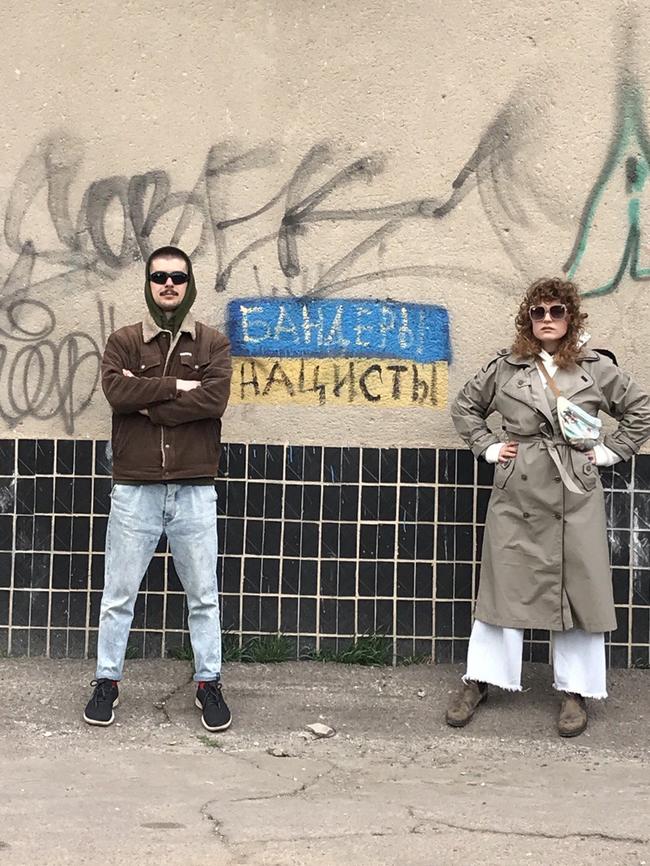
People smuggling has become a booming business in Ukraine due to the war as citizens try to escape the conflict.
“You paid $150 and these people would take the money and transfer us from Kherson through occupied Crimea, through all checkpoints,” Dasha said.
“I believe these evacuation companies were just people who had minibuses and Sprinters and were making money with them by paying off soldiers.”
The plan took weeks of preparation, with the family needing to be able reassure officials that they were just visiting Georgia — not escaping.
“Some people (who had tried this approach) were sent back to Kherson so we needed to know the plan, what to say and not to say, what was right to say,” Dasha explained.
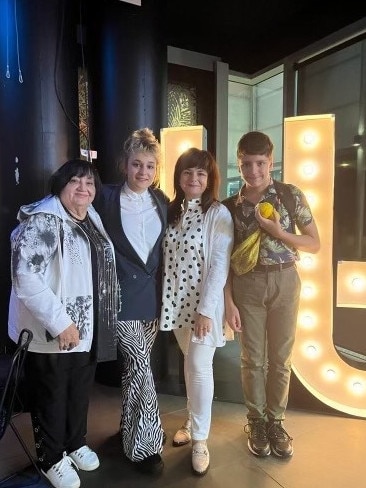
“I was collecting this information from my friends who had left, learning how they acted and what they said.
“We said (to soldiers and officers) we were leaving because (my brother) needed to go to the seaside, and the seaside in our region is closed because of the war, so we want to go to Georgia.
“We stuck to the story that we wanted to come back and it wasn’t really matching with the amount of baggage we had, but whatever.”
After two border crossings using different buses and multiple run-ins with Russian soldiers and officials at checkpoints, the family arrived in Georgia’s capital Tbilisi before quickly securing visas to Australia as part of the federal government’s offer to Ukrainian refugees.
“(When we arrived in Brisbane on June 22) we were lost, sad and broken but I remember we all helped each other,” Dasha said.
“(Arriving) was like I was in a dream, like a crazy surrealist movie — in Brisbane, it’s just a fancy city, skyscrapers and all these roads and entertainment.
“I had $5 in my bank account but the bus was only $3 so I thought ‘woo-hoo’.”
Even after two and half years, the family is still reeling from the brutal occupation, with Dasha and her partner coming to terms with what they experienced.
“I was (and still am) suffering from insomnia and nightmares of Russian soldiers, that I’m running from them — you wake up crying,” Dasha said.
“I was afraid of loud noises (and) I’m still jumpy with unexpected noises.”
‘He just wanted to say goodbye’: Fears for loved ones caught in conflict
Oksana Schevchenko and her mother Nadiia aren’t sure the next time they speak to her brother Roma won’t be the last.
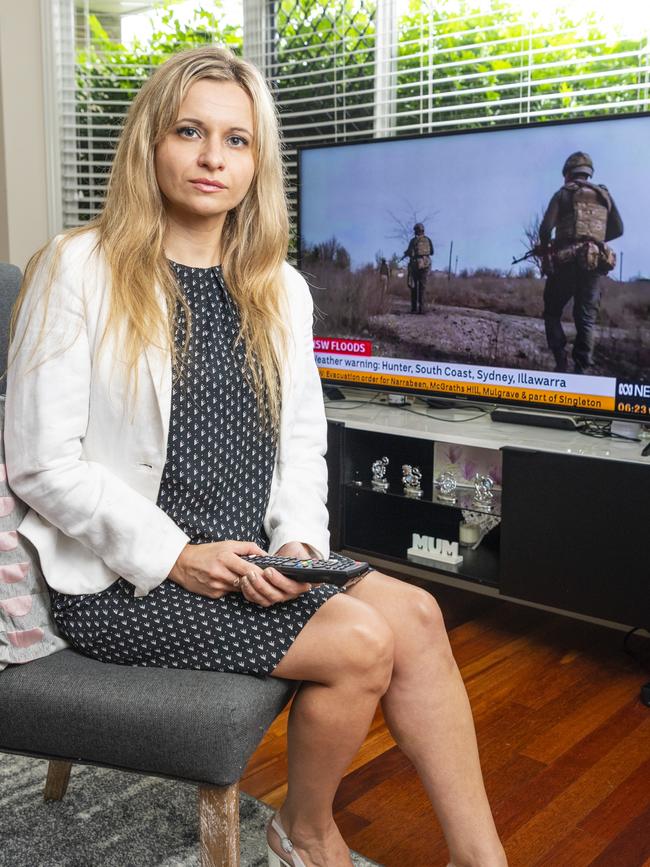
“He rang us a couple of months ago and said he didn’t know if he would (speak to) us again, but he just wanted to say goodbye — it was on the front lines of a conflict,” the Ukrainian-born Toowoomba woman said.
Ms Schevchenko’s brother is among the nearly 900,000 men defending their homeland against Russian forces — a job that has grown more perilous as the two sides become more desperate.
While there is a dispute on the official number of casualties, it is estimated between 60,000 and 100,000 Ukrainian soldiers have already been killed, with nearly half a million wounded.
But Ms Schevchenko said it was the manner in which Roma was “recruited” to the army that unsettled her and her mother.
“It was last year in March; he went to the grocery store, picked up his grocery bags and he never went home,” she said.
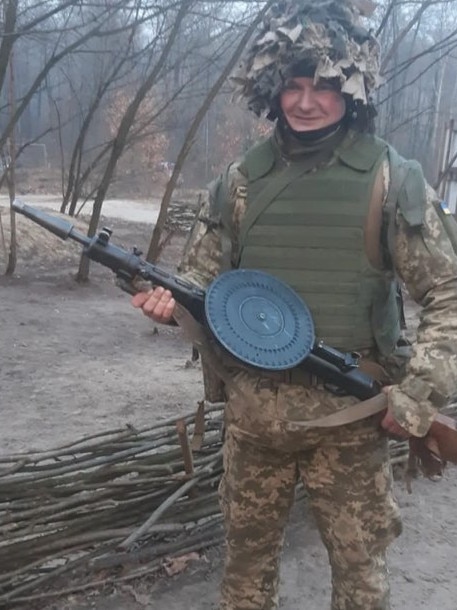
“They just took him from the shops, so that was a bit scary — he did extra training, we didn’t have contact with him for three months.”
Away from the front lines, Ukrainians have been forced to take the war in their stride, adapting their usual routines to include sudden trips to bomb shelters if required.
Ukrainian-born Brisbane woman Anna, whose parents actually returned to the capital Kyiv following the initial incursions in 2022, said the dark humour of the situation had not been lost on her family.
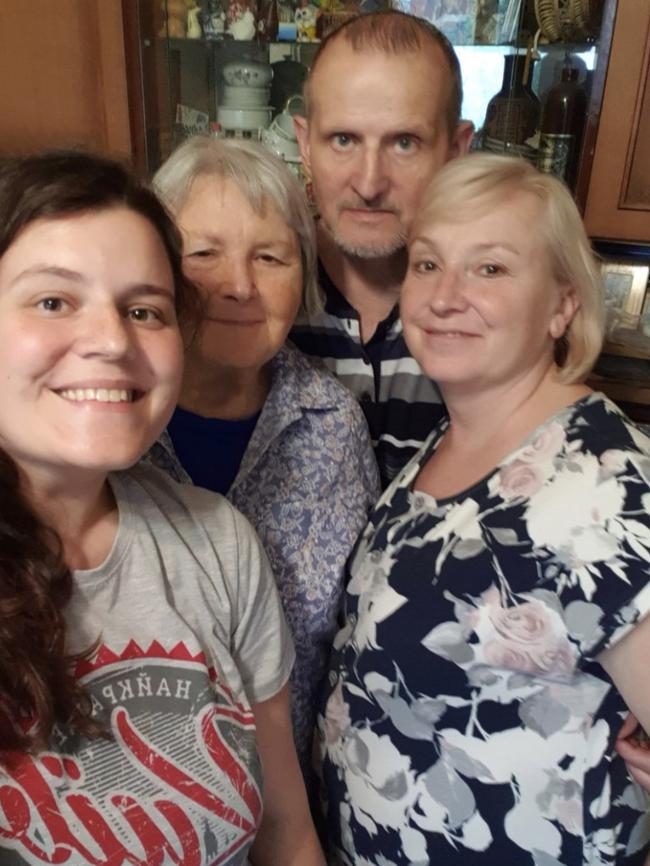
“Eventually I got them moved to the UK and they stayed there from April until August and then they started to return because things were getting better,” she said.
“My parents are teachers and they were asking people to return to get back to their jobs.
“Now there are these monitoring channels on Telegram (for air raids and attacks) and people now have all this knowledge about the military they shouldn’t (have to) know, like whether it’s a drone strike and the type of artillery and knowing how much time they have before it hits.
“I was speaking to my mum a little while ago and then there was an air raid, she checked Telegram and saw it was a drone and that it would hit in about an hour — she said, ‘I can still make my hair appointment’.”
Ms Schevchenko agreed with this sentiment, praising her fellow Ukrainians for their strength and spirit while a dark cloud hung over their country.
“People are so resilient — for my friends (still living in Ukraine), you’re trying to walk your dog, do your shopping, you just wait until the bombs stop,” she said.
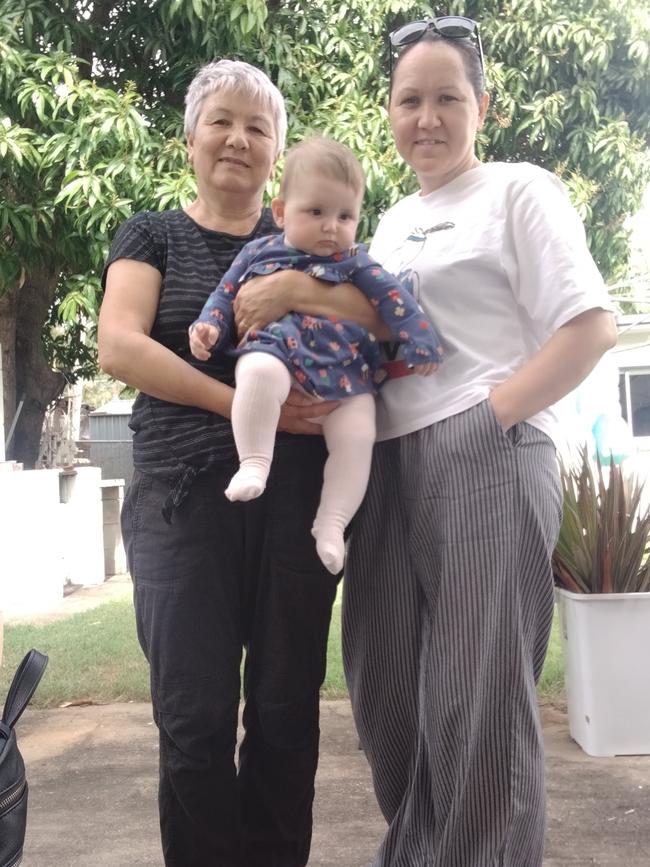
“The people in Ukraine are very patriotic.”
Ukrainian woman and Townsville resident Anastasiia Indiukova fears for her grandmother and cousins still living under Russian occupation in her hometown of Mariupol, which was sieged for three months in the early weeks of the war before being taken over.
But even though her mother and brother are in the relative safety of western Ukraine, she said the war still made her anxious.
“I was trying to get them here when Australia opened the borders, they said they’re not going to leave,” Ms Indiukova said.
“My brother didn’t want to leave, because he was helping making bread and food for the army — they gave him an award for what he’s done.
“My husband still tells me that if I was there I would be fighting (because of what happened in Mariupol).
“It’s my house that they destroyed, my school that they destroyed, it was my old workplace that they destroyed.”
‘Russia will take over’: Ukrainians react to second Trump term
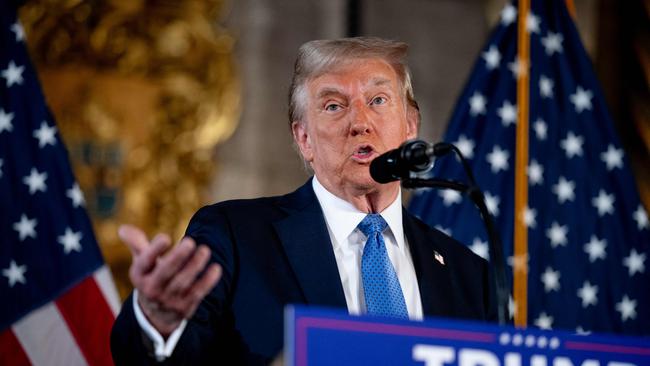
The third anniversary of Ukraine War in February will fall about a month after President-elect Donald Trump is inaugurated for a second time, marking a potentially significant shift in geopolitics and how the future of the war.
After famously boasting he could end Ukraine War within 24 hours, Mr Trump’s envoys have now back-pedalled by suggesting it could be resolved “within 100 days” of his taking office.
The former president has expressed praise and even admiration for Russian counterpart Vladimir Putin, and Ukrainian authorities fear any US negotiations now could see it cede land that had been lost during the war.
Mr Trump’s pick for Secretary of State, US Senator Marco Rubio, says a ceasefire should become policy but would require concessions from both Russia and Ukraine.
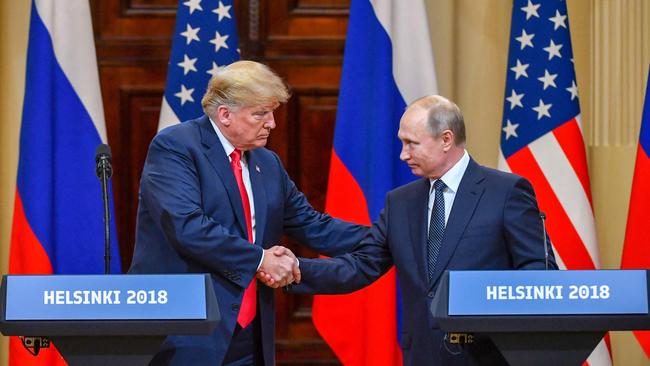
This has coincided with Ukraine ramping up its attacks inside Russia, in a bid to secure more bargaining chips if they are forced to come to the table.
While she wouldn’t comment on Trump directly, Brisbane’s Dasha said she still held out hope for a resolution that would see Ukraine restored whole again.
“I have hope and faith that the war is not going to be frozen, a resolution will be found and the resolution will be to stop Putin and get our territories back,” she said.
Ms Schevchenko was far less optimistic, believing Trump’s return to the White House would play straight into Mr Putin’s hands.
“I don’t think it will be good for Ukraine, because America was helping Ukraine with their military, now I don’t think they will,” she said.
“Russia will take over eventually, as much as I’m sad to say — I always had a hope that Ukraine would end up back on its feet (but) with Trump as president, the chances are very low.”
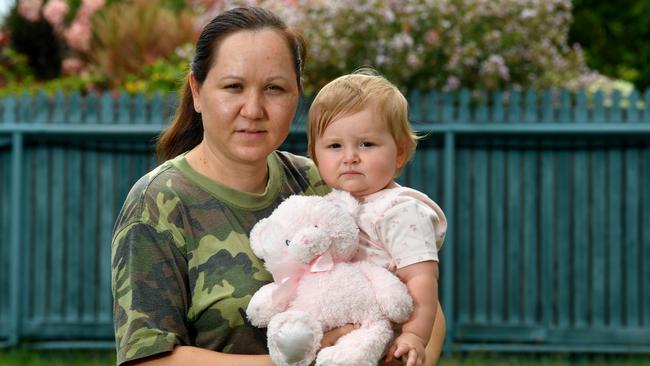
Ultimately, Ms Indiukova said the thing she wanted for her home country in 2025 matched the meaning of her daughter’s name Solomia.
“It means peace, and we need it so badly,” she said.
“It was meant for her (because of the war), because we need it — the whole nation needs to healed.”
Don’t forget us: Ukrainians’ plea to Australians
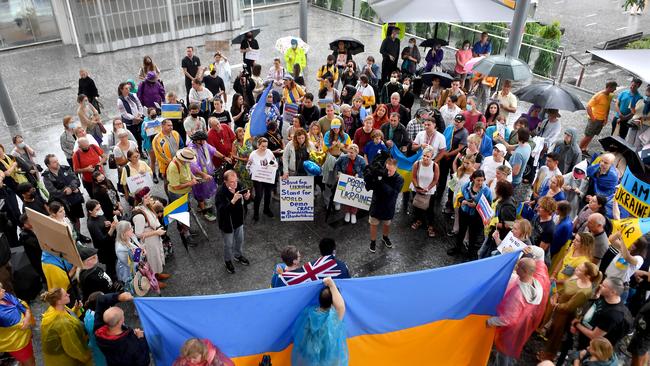
A major concern for Dasha, along with many Ukrainians living in Australia, is the diminishing coverage of the war by the media and its profile to the public.
She said while other conflicts like Israel’s bombing of civilians in Gaza following Hamas’ October 7 attacks had understandably captured global attention, people shouldn’t lose sight of the stakes in Ukraine.
“It’s painful to see how others in Australia are trying to say (other groups’) grief is bigger than ours,” she said.
“It’s very painful, especially for people who have never seen that, and they dare say that the situation in Ukraine is not that bad.
“That really hurts; it’s not a contest, it’s people’s lives.
“What I see in action is Ukrainian rallies in Australia collecting maybe 50 people and the others hundreds.”
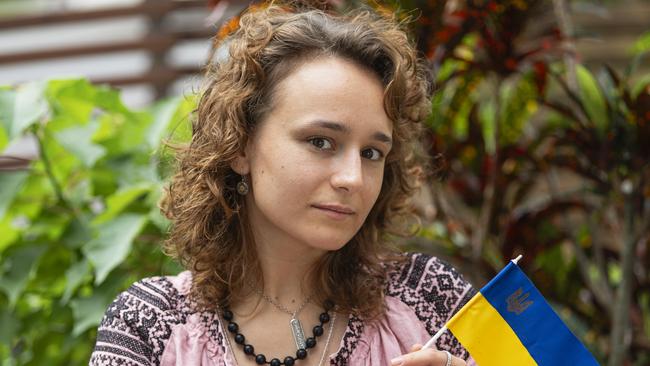
Anna said she was also concerned by the declining attention paid to the war in Australia, urging her new citizens to continue following it and supporting efforts to help Ukrainians, even in small ways like donating money or aid.
“Since I moved, I’ve had multiple people come up to me and think everything is fine now – because there’s nothing in the news, the situation has sorted itself out,” she said.
“Obviously the war in Gaza, that got a lot of media attention, so it’s natural for people not to focus on this war if they don’t have direct connections to it.”





